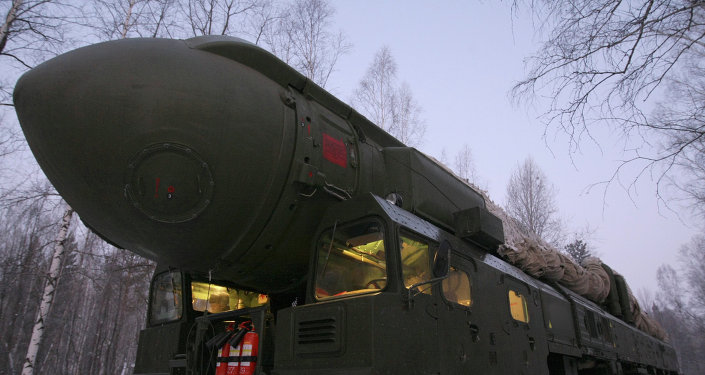
Russia's development of a space-based nuclear weapons system has raised significant concerns within the U.S. military, with General Stephen Whiting, commander of U.S. Space Command, highlighting the potential global threat posed by such a capability.
Speaking at the Aspen Security Forum, Whiting emphasized the indiscriminate nature of a space-based nuclear weapon and its profound impact on satellite operations worldwide.
"It's a completely indiscriminate weapon," Whiting stated. "It would affect the satellites of the United States, China, Russia, Europe, India, Japan – holding at risk the entire modern way of life. It’s just an incredibly reckless decision."
The discussion surrounding a possible Russian deployment of a nuclear weapon in space has been ongoing since February, following briefings by the Biden administration to Congress on this emerging threat. (Related: A growing number of Russians approve the use of nuclear weapons in Ukraine.)
While it was clarified that such a weapon wouldn't directly cause physical destruction on Earth, Air Force Lieutenant General Jeffrey Kruse, director of the Defense Intelligence Agency, underscored the extensive ramifications.
"If they were to detonate a nuclear weapon in space, it wouldn't just impact military targets," General Kruse explained. "Everything within line of sight at low Earth orbit would suffer immediate effects."
Whiting also noted that deploying such a weapon would constitute a clear violation of Russia's obligations under the Outer Space Treaty, an international agreement that prohibits placing nuclear weapons or weapons of mass destruction in space.
"Throughout history, there has been an expectation that space would remain free of nuclear weapons," Whiting emphasized. "By potentially moving forward with this capability, Russia is undermining that longstanding expectation."
U.S. intelligence agencies have been monitoring Russia's development efforts for nearly a decade, with General Kruse indicating that Russia is nearing completion of its preparations. He highlighted that this system represents part of a broader strategy by Russia and increasingly China, to enhance their ability to threaten U.S. assets in space.
"China, in particular, aims to challenge U.S. leadership in space and perceives U.S. reliance on space as a strategic vulnerability," General Kruse elaborated. "Their advancements in anti-satellite capabilities and related technologies are part of a larger effort to deter or influence U.S. actions."
The pursuit of a space-based nuclear weapons system by Russia is viewed by U.S. military officials as a strategic move to offset perceived weaknesses in conventional military capabilities. Despite the challenges Russia faces with launch capabilities and satellite maintenance, their collaboration with China in space-related endeavors represents a notable development in their strategic partnership.
Russia's pursuit of space-based weapons a threat to global space operations
Russia's pursuit of space-based weapons, including a nuclear anti-satellite system, poses a grave threat to global space operations.
President Vladimir Putin's strategic goal to diminish U.S. dominance in space, coupled with Russia's declining space capabilities compared to the U.S. and China, drives this development.
With limited economic leverage over Russia due to Western sanctions, the U.S. seeks cooperation from China and India, which have burgeoning economic ties with Russia, to deter its pursuit of destructive space weapons.
These weapons, ranging from kinetic projectiles to potentially nuclear options, endanger satellite constellations crucial for military, civilian and commercial functions globally.
Despite efforts at the United Nations, where Russia vetoed resolutions against nuclear weapons in space and ongoing U.S. concerns, convincing China and India to use their economic leverage remains pivotal.
China's and India's burgeoning space capabilities and strategic interests align with safeguarding space as a domain free from indiscriminate weaponry. Collaborative efforts to curb Russian aggression in space could mitigate these threats and preserve global space security.
This complex geopolitical challenge underscores the need for strategic cooperation among major powers to ensure the safety and sustainability of space activities in the face of evolving threats.
In conclusion, the U.S. military considers Russia's potential deployment of a space-based nuclear weapon as a significant and destabilizing development with profound implications for international security and strategic stability.
Follow WeaponsTechnology.news for similar stories.
Watch this video of Russia launching a space weapon into low Earth orbit.
This video is from the Puretrauma357 channel on Brighteon.com.
More related stories:
China is two years away from deploying KILLER ROBOTS on the battlefield.
Russian army debuts robot dog with grenade launcher strapped to back.
Sources include:
Please contact us for more information.















